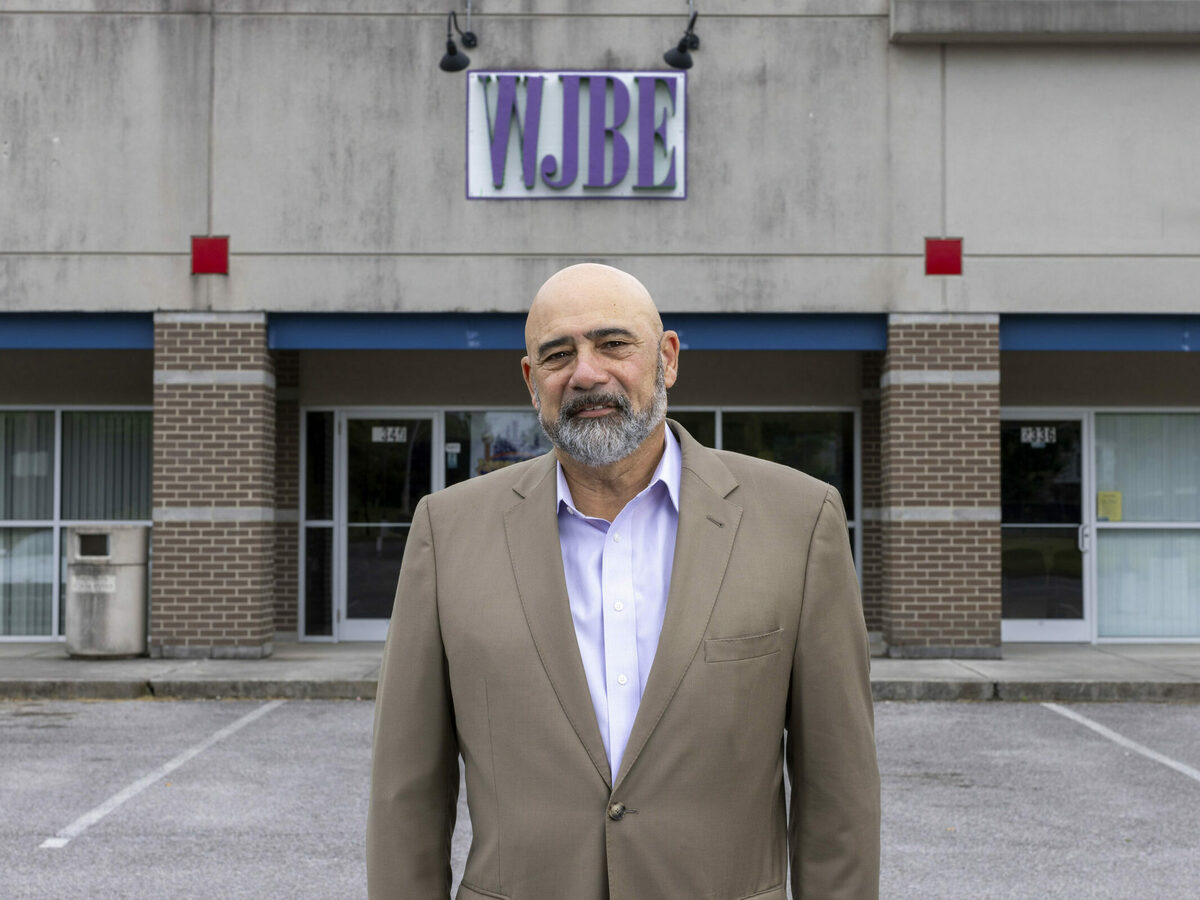Joe Armstrong, the owner of WJBE, is shown outside the station. A Federal Communications Commission judge rejected an effort by the agency to strip the license of WJBE 99.7 FM/1040 AM — whose call letters pay tribute to the original WJBE’s owner, the Godfather of Soul, James Brown — Knoxville’s only Black-owned radio station.
Institute for Justice
hide caption
toggle caption
Institute for Justice


Joe Armstrong, the owner of WJBE, is shown outside the station. A Federal Communications Commission judge rejected an effort by the agency to strip the license of WJBE 99.7 FM/1040 AM — whose call letters pay tribute to the original WJBE’s owner, the Godfather of Soul, James Brown — Knoxville’s only Black-owned radio station.
Institute for Justice
A Federal Communications Commission judge rejected an effort by the agency to revoke the broadcast license of WJBE 99.7 FM/1040 AM, Knoxville, Tennessee’s only Black-owned radio station — allowing the station to continue broadcasting.
In a ruling handed down on Sept. 14, a judge ruled that WJBE’s owner, Joe Armstrong, should not have his broadcast license revoked — despite the agency’s concerns over Armstrong’s old felony conviction for a tax crime, one that occurred years before he took ownership of the station in 2012.
Judge Jane Hinckley Halprin, the agency’s administrative law judge, concluded in the ruling that Armstrong’s conviction was an isolated event, saying that “enough time has elapsed to show that Mr. Armstrong has remediated his wrong.”
“If I was being permanently punished for the mistakes I made in my past, [WJBE] wouldn’t be in existence — nor would this station be recognized for the programming that we’re bringing to Knoxville,” Armstrong, a former long-serving state representative in the Tennessee General Assembly, told NPR.
“[The judge] looked beyond my faults and saw the community’s needs,” he added.
WJBE is known for being a fixture in the Knoxville area, serving as a source of news for the Black community — being very much a community-oriented station, Armstrong said.
The station broadcasts local news and weather, church services, emerging artists, free advertising for struggling small businesses and, in recent years, information about the COVID-19 pandemic.
But for the last two years, WJBE — whose call letters pay tribute to its original owner, the Godfather of Soul, James Brown — has battled with the FCC over Armstrong being able to own a radio station with integrity following his conviction in 2016 for making a false statement on his tax return.
The agency argued that Armstrong breached ownership regulations due to his prior conviction, as they attempted to implement its 33-year-old character qualifications policy for radio license holders.
“It’s not like this is something that happened, let’s say, this year or last year — we’re talking about something that happened in 2008,” Armstrong told NPR in a June 2023 interview.
Nearly 15 years ago, Armstrong and a partner legally bought cigarette tax stamps that were later sold for a profit following the Tennessee legislature’s vote to increase the state’s cigarette tax, according to the Institute for Justice, a nonprofit public interest law firm that helped Armstrong fight the case.
His accountant reportedly did not properly pay the taxes on this sale and as a result, Armstrong faced trouble with the IRS.
In 2016, Armstrong was acquitted of most of the charges against him and was convicted of only a single count of making a false statement on his tax return. (His accountant, Charles Stivers, was convicted of tax fraud and was granted probation in 2017.)
Armstrong’s civil rights, including his right to vote, were restored in 2020. In 2017, Armstrong says he let the FCC know about his conviction, which he says had caused no issues up until 2022.
But despite all efforts, the FCC still raised concerns about his ability to run WJBE.
Andrew Ward, the attorney who represented Armstrong in the case, told NPR that an old personal tax violation shouldn’t prohibit someone from holding a broadcast license.
“The government should not get in the way of people working because of irrelevant criminal convictions,” Ward said. “It happens all the time. It was irrational here and it’s irrational when it happens anywhere.”
The FCC did not immediately respond to NPR’s request for comment regarding Armstrong’s case. The agency has the option of appealing last week’s decision, but it is unclear if it will choose to do so.
This story originally appeared on NPR



